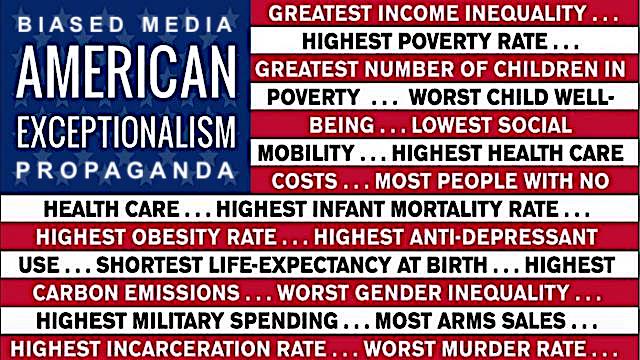Search
Recent comments
- killing kids....
1 hour 5 min ago - the die is cast....
2 hours 57 min ago - SICKO.....
3 hours 18 min ago - be brave, albo....
5 hours 48 min ago - epstein class....
6 hours 53 min ago - in writing....
7 hours 5 min ago - hoped....
9 hours 5 min ago - murdering kids....
10 hours 5 min ago - saving....
10 hours 34 min ago - a speech never made....
1 day 5 min ago
Democracy Links
Member's Off-site Blogs
sicko media in a sicko country.......

Yesterday, the Senate Committee on the Judiciary voted 15–7 to advance the worrying Journalism Competition and Preservation Act (JCPA).
This bill would carve out an antitrust exemption for news media, enabling journalistic groups to band together as “joint negotiation entities” to demand payment from major digital platforms (such as Meta and Google) for links to and previews of their publications. If the joint negotiation entity cannot reach an agreement with the platform, the journalists would be able to force independent arbitration to set the payment level.
By Ryan Bourne and Rachel Chiu
Last month, we explained why this amounted to a government‐sanctioned local newspaper industrial policy. Big tech platforms would be forced to pay to subsidize journalists, with arbitrators compelled to ignore any value that digital platforms granted news outlets for sharing their content.
But two weeks ago, it looked as if the bill might die. Republican Senator Ted Cruz succeeded in adding a content moderation amendment, which would prevent digital platforms from adding conditionality to their payments by asking news outlets to take down certain content, such as political speech. Senator Amy Klobuchar, the bill’s sponsor, immediately withdrew her support, noting that the compromise between her and her Republican colleagues had been effectively “blown up” with the prospect of tech companies having to pay for unsavory sites’ output.
But yesterday, the JCPA returned and took its next step towards a full Senate vote. Cruz and Klobuchar struck a deal and proposed SIL22B36, effectively swallowing the same content moderation amendment that was added two weeks ago. Specifically, it prevents the negotiating parties from discussing how they “display, rank, distribute, suppress, promote, throttle, label, filter, or curate” content. The bill picked up a few more conservative votes with the addition of these content moderation provisions.
Despite this, a majority of the Republican members still opposed the JCPA. Democratic Senators Alex Padilla, Jon Ossoff, and Patrick Leahy voted in favor while maintaining significant reservations too. They noted, as we documented before, that the bill would do nothing to promote competition. It’s instead about forcing a transfer from Big Tech to a favored industry whose revenue was eaten into by the rise of targeted online advertising.
This type of legislation has been dubbed a “link tax” overseas. In 2014, Spainenacted a copyright law that required Google and other news aggregators to pay fees to the Association of Editors of Spanish Dailies. Last year, the Australian Parliament passed the News Media and Digital Platforms Mandatory Bargaining Code which delineated the terms of negotiation between media companies and digital platforms. The JCPA, similarly, uses technology companies as a scapegoat for the difficulties of local newspaper journalism, which has seen its traditional content unbundled as a result of the internet.
As we concluded before, the JCPA would deliver a one‐sided carve‐out from antitrust law – and only to a specific industry. It forces platforms to engage in negotiations in “good faith,” subject to final and binding arbitration if no deal can be reached, while banning the platforms from simply delisting forms of content. This will open up a legal minefield, but the impulse is clear: to force payments to journalists from tech companies. As such, this bill is incompatible with free markets and voluntary, mutually beneficial negotiation.
READ MORE:
https://www.cato.org/blog/dangerous-journalism-competition-preservation-act-returns
SEE ALSO:
"we" (democrats) information protection (censorship) racket.......
FREE JULIAN ASSANGE NOW...............
- By Gus Leonisky at 6 Dec 2022 - 7:56am
- Gus Leonisky's blog
- Login or register to post comments
media loophole......
The Journalism Competition and Preservation Act (JCPA) contains a loophole that would allow foreign news organizations, including Chinese organizations, to influence the flow of information in the United States — even as lawmakers prepare to attach the derided media bailout bill to the National Defense Authorization Act (NDAA), a bill to fund national defense.
The JCPA has already attracted condemnation for its core elements, namely the transfer of wealth to already-wealthy media companies and the potential for the media industry to demand more censorship from Silicon Valley platforms.
But the China concerns, which are reportedly attracting attention on the Hill, add another twist to the story of a bill that has repeatedly been revived from the dead by media lobbyists over the past two years.
READ MORE:
https://www.breitbart.com/tech/2022/12/05/the-jcpa-contains-a-massive-loophole-for-china/
RREAD FROM TOP.
FREE JULIAN ASSANGE NOW...............